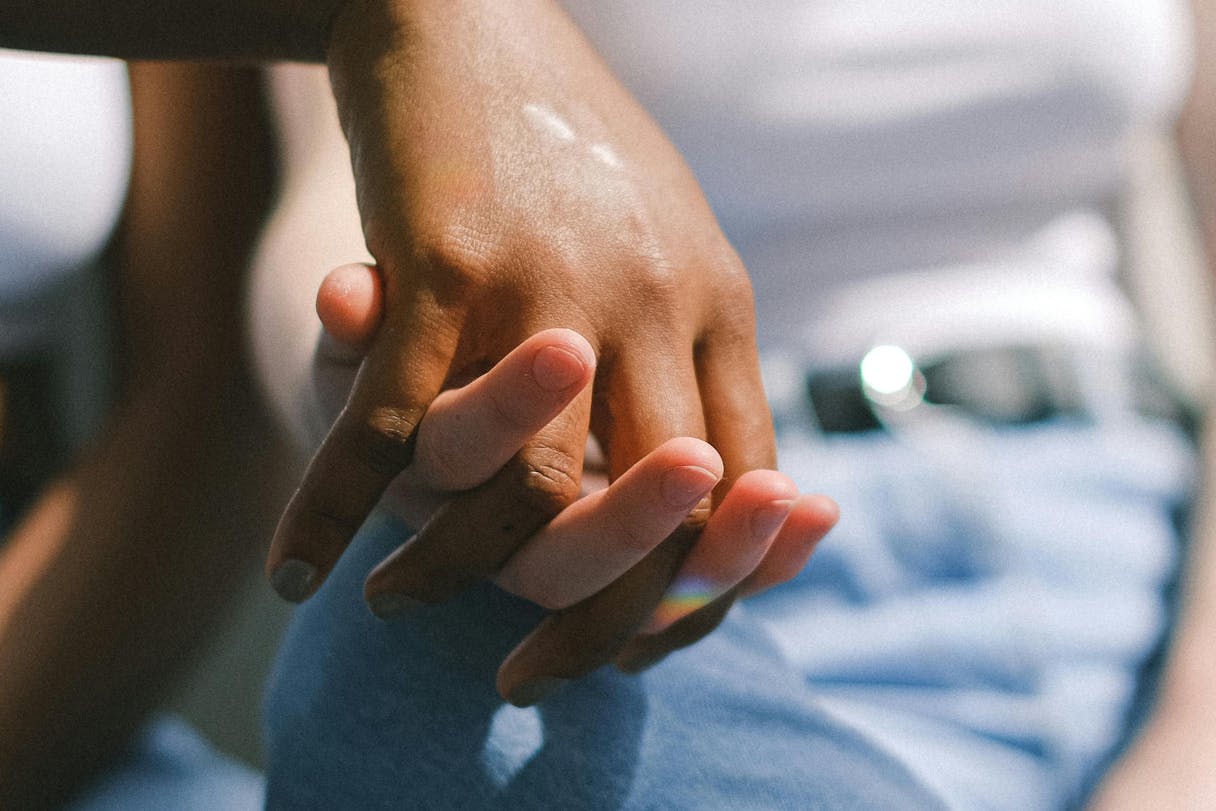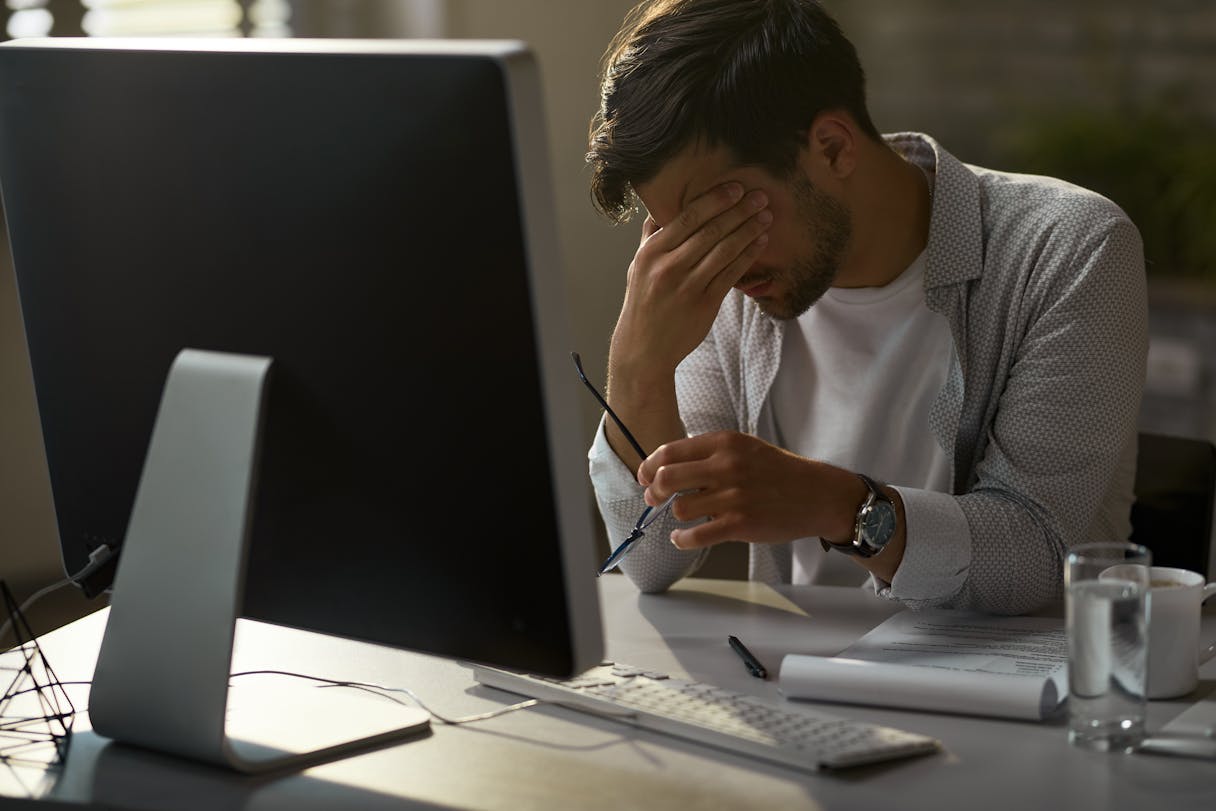What Are Anxiety Chills?

Anxiety is an all-too-common experience for many individuals. With its array of physical, emotional, and behavioral symptoms, one of the more perplexing physical signs of anxiety is the onset of chills, shivering, or breaking into a cold sweat during moments of heightened stress or nervousness.
This informational article unpacks what anxiety is, the different types of anxiety disorders, what anxiety chills are, why anxiety can cause chills, and common treatment options for managing anxiety and its symptoms.
It’s important to note: While you’ll gain general knowledge here, only a licensed professional can diagnose and treat mental health conditions.
What is anxiety?
Anxiety is a natural response to stress, characterized by feelings of apprehension, uneasiness, worry, and nervousness. While occasional anxiety can be a regular part of life, persistent and excessive anxiety could interfere with daily functioning and overall well-being. That’s when this natural response can become a disorder.
Anxiety can produce a wide range of symptoms, both physical and psychological. Common symptoms include rapid heartbeat, sweating, trembling, gastrointestinal issues, excessive worrying, restlessness, fatigue, difficulty concentrating, and irritability.

Free mental health resource: Understanding Anxiety
Types of anxiety disorders
Anxiety disorders encompass a variety of conditions, each with its own set of signs and triggers. Some common types of anxiety disorders include:
- Generalized anxiety disorder (GAD): Characterized by persistent and excessive worry about a wide range of everyday concerns.
- Social anxiety disorder (SAD): Involves an intense fear of social situations, leading to avoidance of social interactions.
- Panic disorder: Characterized by recurrent panic attacks, which are sudden episodes of intense fear or discomfort.
- Phobias: Persistent and overwhelming fear of a specific object, scenario, or action, often without a real threat.
What are anxiety chills?
Anxiety chills, also known as anxiety shivers or anxiety shakes, are physical sensations of coldness or trembling that occur in response to stress or anxiety. These chills can manifest as a sudden wave of coldness or uncontrollable shaking.
Why do anxiety shakes happen?
You might be familiar with cold chills as a reaction to a sudden drop in temperature, but why does anxiety cause the same response despite the absence of low temps? The answer lies in the activation of your sympathetic nervous system, commonly known as the 'fight or flight' response.
When a perceived threat triggers your body's stress response, a cascade of neurochemical changes occurs, including the release of adrenaline and cortisol. These hormones prime your body for action, constricting blood vessels and diverting blood flow to your major muscle groups. The result is an increased metabolic rate and, as a consequence, heightened body temperature that can tip the scales, inducing a perceived chill.
These responses are meant to prepare the body to respond to danger, but in the case of anxiety disorders, they can occur inconveniently or excessively.

Common triggers of anxiety shivers
Various factors can trigger anxiety chills and other physical symptoms of anxiety. Common triggers include:
- Stressful events: High-pressure situations, such as public speaking, job interviews, or exams, can trigger anxiety chills.
- Trauma: Past traumatic experiences may contribute to the development of anxiety disorders, leading to symptoms like chills and trembling.
- Social situations: For individuals with social anxiety disorder, interactions with others can provoke intense anxiety and physical symptoms like shaking.
- Health conditions: Certain medical conditions, such as thyroid disorders or cardiovascular issues, can make anxiety symptoms worse.
Identifying and understanding your triggers can help chart a course toward symptom management and overall well-being.
Free mental health resource: Trigger Log worksheet

Managing anxiety chills
Understanding your anxiety and its triggers is the first step to managing symptoms and regaining composure. You may find these coping strategies helpful in subduing anxiety shakes:
- Lifestyle adjustments: Adopting healthy lifestyle practices could help reduce the frequency and intensity of chills associated with anxiety.
- Avoid certain substances: Substances that stimulate your nervous system can worsen symptoms of anxiety. Consider minimizing or eliminating caffeine, alcohol, and/or nicotine.
- Practice relaxation techniques: Regularly using relaxation techniques like meditation, deep breathing, and progressive muscle relations could help train your body to counteract the stress response, reducing the likelihood of chills.
By actively working toward managing these symptoms, you can improve your overall well-being and engage more fully in daily activities and relationships.
Treatment for persistent anxiety symptoms
If your anxiety symptoms are persistent or significantly impair your life, consider getting professional treatment.
Therapy for anxiety disorders and symptoms
Specific therapy options are tailored to address these disorders and their associated symptoms. Common anxiety-focused therapy practices include:
- Cognitive behavioral therapy (CBT): A structured, time-limited form of psychotherapy aimed at helping individuals understand the interplay between their thoughts, emotions, and behaviors to manage anxiety disorders and symptoms more effectively.
- Exposure therapy: An approach that gradually exposes individuals to their feared object or context under controlled conditions, helping to reduce their anxious response over time.
- Acceptance and commitment therapy (ACT): Focuses on accepting uncomfortable thoughts and feelings rather than trying to control or eliminate them.
If you’re showing signs of anxiety-related disorders, seeing a therapist could help you manage those symptoms and reclaim a sense of peace and balance in your life.
Medications for anxiety symptoms and disorders
In some cases, medications may be prescribed as part of anxiety treatment. Commonly prescribed medications for symptoms of anxiety disorders include antidepressants like selective serotonin reuptake inhibitors (SSRIs) and serotonin-norepinephrine reuptake inhibitors (SNRIs).
It's essential to work with a qualified professional to explore what modalities and treatments work best for you.
How Cerebral can help
At Cerebral, we offer personalized treatment designed to guide you toward a calmer, more fulfilling state. With convenient and affordable access to licensed mental health professionals from the comfort of your home, we make it easy for you to prioritize your mental health.
Through Cerebral's online mental wellness services, you'll receive evidence-based interventions and personalized guidance to address your specific anxiety symptoms, empowering you to cultivate resilience and achieve emotional balance.

Do I have an anxiety disorder?
If you’ve been wondering this, you can start gaining clarity by taking our 3-minute anxiety screener to gauge the level of your anxiety symptoms.
Images by freepik, Drazen Zigic, benzoix, and freepik on Freepik.
*The information in this blog is provided as a general educational resource only, and is not to be used or relied on for any diagnostic or treatment purpose. This information should not be used as a substitute for professional diagnosis and treatment and does not create any patient-physician relationship between you and Cerebral. Please consult your health care provider before making any health care decisions or to get guidance about a specific medical condition.

Relationship Anxiety: Understand the Signs and Ways to Cope

Anxiety and Memory Loss

Experts Recommend Anxiety Screening for Those 19-65

Call 911 if you’re having a
mental health emergency
Text Home to 741-741 if you're in emotional
distress and need immediate support
Call or text 988 Suicide &
Crisis Lifeline. Chat service
is available at 988lifeline.org.